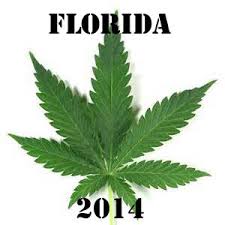 The nationwide debate over the legal status of marijuana is prepared to take center stage in Florida. This week, Florida Governor Rick Scott approved a low-THC strain of medical marijuana in Florida. The bill, known as “Charlotte’s Web,” is specifically designed to legalize a non-euphoric form of marijuana for use in treating epilepsy, Lou Gehrig’s disease, and some forms of cancer. The bill is named for Colorado girl Charlotte Figi, whose parents and doctors lobbied for the legalization of the non-euphoric strain after Charlotte experience a reduction of her epileptic seizures.
The nationwide debate over the legal status of marijuana is prepared to take center stage in Florida. This week, Florida Governor Rick Scott approved a low-THC strain of medical marijuana in Florida. The bill, known as “Charlotte’s Web,” is specifically designed to legalize a non-euphoric form of marijuana for use in treating epilepsy, Lou Gehrig’s disease, and some forms of cancer. The bill is named for Colorado girl Charlotte Figi, whose parents and doctors lobbied for the legalization of the non-euphoric strain after Charlotte experience a reduction of her epileptic seizures.
However, this bill could prove to be a minor development in comparison to a coming November Florida ballot referendum. The Florida Supreme Court recently okayed the measure, which would open up a full-scale commercialized medical marijuana program like those in California, Oregon, and Michigan if passed.
As is usual with any major law changes, both the Charlotte’s Web bill signed by Governor Scott and the November referendum are raising questions from all corners of society. Many of those questions will linger until the November vote, but we can answer some already:
-What does the Charlotte’s Web law do? It legalizes non-euphoric marijuana strains for limited medical uses.
-When is the Charlotte’s Web law going to take effect? The law’s launch date is January 1st, 2015. Until then, no changes will occur.
-Will employers be able to take punitive measures against employees with prescriptions who test positive for marijuana? This is a tricky issue, one whose legal status may change in coming years. Companies are still allowed some leeway to enforce anti-drug policies. It’s best to check with the employer’s policies if you’re unsure.
Florida is just the latest state to wrestle with efforts to at least partially legalize marijuana. Advocates argue that marijuana is not dangerous enough to warrant criminal penalties for usage or heavy government spending to crack down on cannabis use, while opponents argue that there is no sense in legalizing a popular recreational drug simply because it is less dangerous than some others. Florida voters will get a chance to weigh in at the polls, even if the ballot measure takes a backseat to Scott’s re-election bid in the public eye.
Until Charlotte’s Web takes effect and the November referendum is decided upon, marijuana is still very much illegal in Florida. Cannabis possession is a common means for law enforcement to pursue relatively easy criminal convictions when needed, and marijuana-related arrests happen frequently as a result. If you are facing a charge, don’t wait for the laws to change—contact an experienced Gilbert and Smallman criminal defense attorney!

